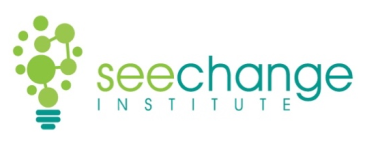Canadian Standards Association
Laying the Foundation for Behavioral Energy Standards
The Challenge
As climate goals become more ambitious, behavior-based energy programs are increasingly recognized as essential tools for reducing demand and promoting efficiency. Yet the field lacks consistent definitions, evaluation frameworks, and guidance, making it difficult for organizations to design, scale, and measure these programs effectively. To address this gap, CSA Group set out to explore whether and how behavioral energy programs could benefit from a standards-based approach.
The Client
“CSA” refers to the Canadian Standards Association brand that was replaced by CSA Group, an independent, not-for-profit association serving industry, government, consumers and other interested parties in Canada and the global marketplace. In 2023, CSA engaged See Change to support its exploration into behavior-based energy standards by gathering insights from across the field and recommending how CSA might contribute meaningful, actionable guidance to practitioners and policymakers.
Our Approach
To inform CSA’s standards development process, See Change conducted a comprehensive literature review of existing research and standards in behavior-based energy programs. We also interviewed 17 experts from across North America, representing a diverse mix of stakeholders from utilities, government agencies, academia, NGOs, and the private sector. Our goal was to surface and synthesize both the current state of the field and the most pressing opportunities for standardization.
Key Findings
The project yielded a set of strategic recommendations for how CSA could support the behavioral energy sector through thoughtful, targeted standards and solutions. These included:
- Develop definitions and parameter standards. Clear operational definitions for all key terms to establish agreement within a given sector are also necessary to avoid using behavioural terminology loosely.
- Develop minimum requirements standards to highlight potential tools, instruments, and methods that can be used throughout the program development process. Standardizing behavioural energy programs (BEPs) or strategies is not recommended, as these evolve as scientific knowledge grows and cultures change.
- Develop standards for evaluation design and data collection and sharing to measure success and support learning across programs. Behavioural energy programs should include an evaluation of behavioural persistence and non-energy impacts. Creating standardized data-sharing protocols and platforms would address the issue of energy data (e.g., from smart meters) not being collected, stored, or analyzed inconsistently.
- Develop standards-based solutions (SBSs) – best practices, guidelines, support, and training – to help build individual and organizational capacity and growth in the energy efficiency and demand response workforce. Augment the many available case studies with guidelines detailing how to identify suitable behavioural strategies or ideas for a given context.
The Outcome
Our final deliverable was a comprehensive report detailing the state of the field, expert perspectives, and a roadmap of potential elements for future CSA standards and solutions. This work laid the groundwork for CSA Group to become a trusted, central resource for behavioral energy program development and to support the growth of a more consistent, evidence-based, and scalable approach to behavior change in the energy sector.
Intrigued? Let’s chat!
